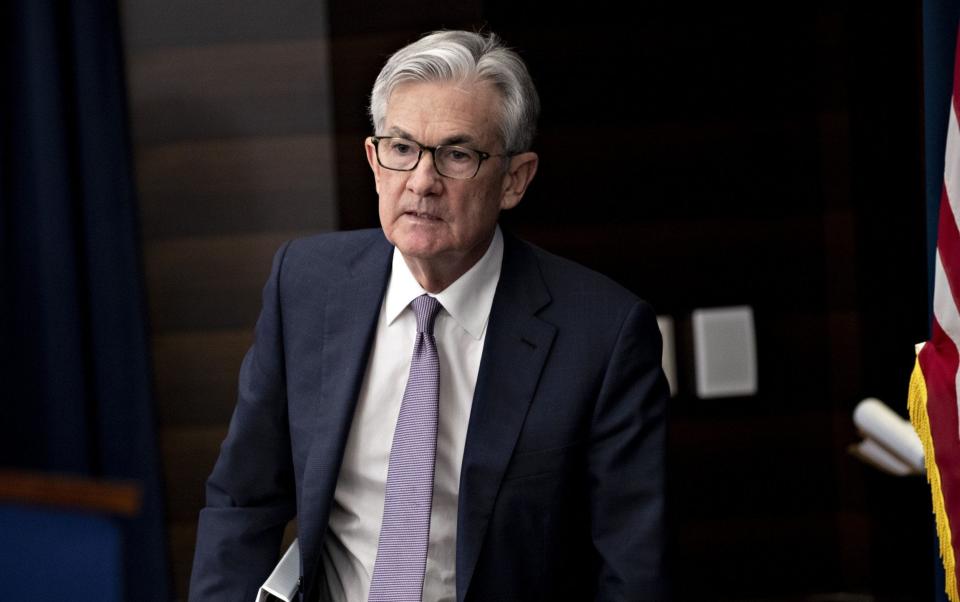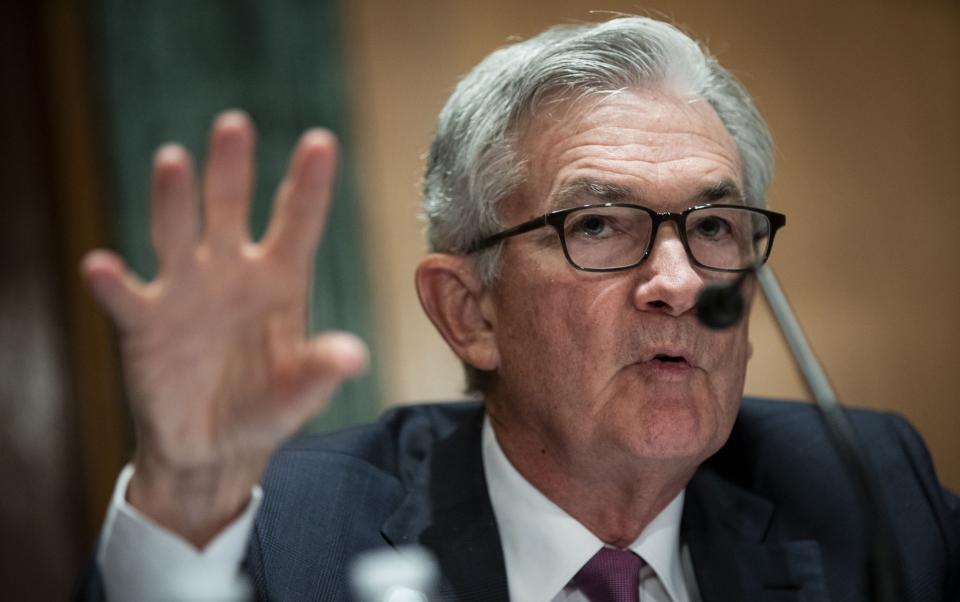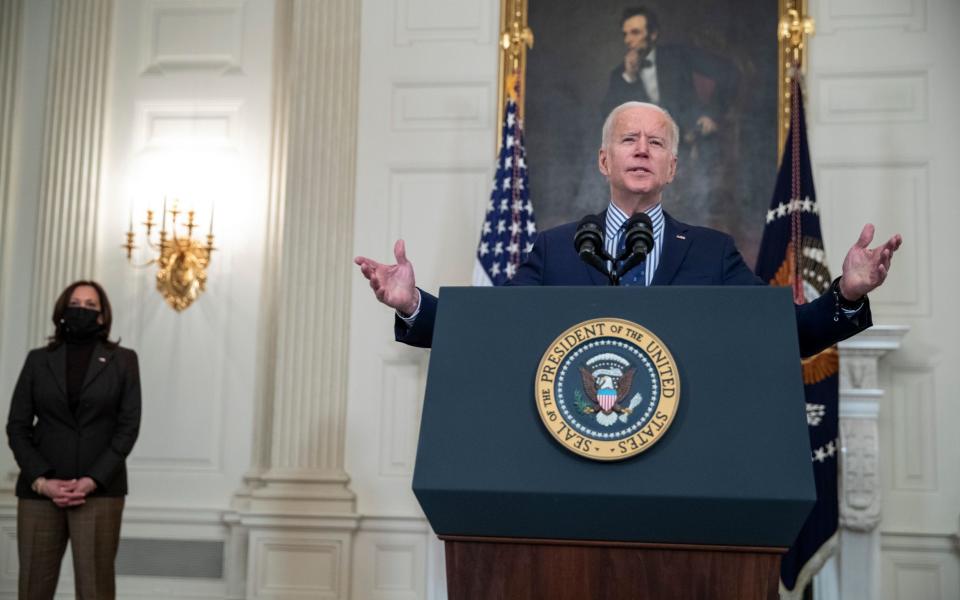Biden faces demands to replace the world’s most powerful banker

When Jay Powell became the 16th chairman of the Federal Reserve – and the world’s most powerful central banker – three years ago, he promised to “wear the carpets of Capitol Hill out” in a bid to restore the reputation of an institution tarnished in the eyes of policymakers by the financial crisis.
Congress remained critical of the Fed’s failure to foresee the crash and angry about the unpopular bailouts that followed. The extent of the Republican’s mission to mend bridges is underlined by his 350 meetings and calls since then as well as numerous appearances before congressional committees.
Powell won praise early in his tenure for his dignified stance in the face of withering attacks from Donald Trump, as well as his initial handling of the pandemic. But as Joe Biden faces a decision over whether to reappoint Powell for a second term, he has found himself in the crosshairs of progressive Democrats looking for a new direction at the Fed as well as increasing concerns on both sides of the political divide over inflation.
The 68-year-old former businessman – a multimillionaire after a career in investment banking and private equity – is still seen as more likely than not to win four more years when Biden makes his choice later this month. Reports suggest he has the backing of treasury secretary Janet Yellen, his predecessor in the Eccles Building who was ousted by Trump after a single term.
But there are powerful voices still ranged against him as inflation hits a 13-year high of 5.4pc long after the economy has regained its pre-Covid peak. Meanwhile, the Fed continues to pump $120bn (£87bn) a month into the economy through a quantitative easing programme which has doubled the size of its balance sheet to $8 trillion: beyond “this year”, there was no firm indication of when Powell intends to take his foot off the pedal at Jackson Hole.
Larry Summers, Bill Clinton’s former treasury secretary, is no fan of the Biden stimulus or the Fed’s QE policy. He took aim at Powell in sensitive terms – accusing the Fed of policy failures akin to Vietnam and Afghanistan – warning that QE was inflating bubbles and had “outlived its usefulness”. Despite the Fed’s insistence that the price spike is “transitory” the reversal of stimulus could be painful if that assumption is wrong, Summers wrote: “As Afghanistan demonstrates, precipitate change of a problematic course can be very costly.”
Those concerns are echoed elsewhere in Washington. Just four Republican senators opposed Powell’s appointment in 2018, but others may join their ranks. For example, Pennsylvania senator Pat Toomey, a leading voice against Powell, has refused to say if he will endorse him for a second term and accuses the Fed of being “behind the curve” on inflation. For Michael Strain, director of economic policy studies at the Republican-leaning American Enterprise Institute, Powell’s appointment is an “open question” rather than the slam-dunk markets believe. He believes the chairman has been “too dismissive” of concerns over monetary and fiscal stimulus and says the Fed should have started tapering “months ago”
“It is past time for QE to be pulled back. The Fed is buying $40bn of mortgage-backed securities at a time when the US housing market is overheated. That just doesn’t make any sense.”

Those raging house prices were underlined by the latest S&P/Case-Shiller index, which measures house prices across 20 major US cities. It showed price inflation of 19.1pc, the biggest annual jump in the 34-year history of the index.
Randy Kroszner, a former Fed governor and economic adviser to George W Bush, says the big question around inflation comes down to a “question of credibility”. “The markets seem to believe Powell – this is temporary and we’re not getting into a situation of long-term inflation. I think it would be incumbent upon the administration to have a very clear explanation as to why they are not sticking with the unknown quantity.”
That fear of the unknown has not stopped progressive Democrats attacking Powell on his other flank. The chairman’s focus on achieving full employment might be thought to win him friends on the Left, but politicians led by Congresswoman Alexandria Ocasio-Cortez have called on Biden to “reimagine” the Fed with a new focus on climate goals under a new leader. Other progressives, including Elizabeth Warren, have also attacked Powell for watering-down post-crisis financial regulations.
Owen Tedford, an analyst at Washington-based policy research firm Beacon Advisors, stresses Powell’s strong support from Yellen but adds that Biden’s commitment to climate change should not be underestimated.

“He’s put a big emphasis on this ‘whole of government’ approach to climate policy. Whether that means trying to lean on Powell or replacing him, I’m not sure, but I think he would like the Fed to do as much as they can to help advance his climate goals.”
Candidates mooted as replacements include Raphael Bostic, the Atlanta Fed chair whose hawkish stance on tapering might appease Republicans. He would also be the Fed’s first black chairman. Senior economists William Spriggs, who worked on the Obama-Biden transition team in 2008, and Lisa Cook would also please Democrats.
Another sop to his progressive wing would be for Biden to replace the Fed’s vice-chairman for regulation, Randal Quarles, with Fed policymaker Lael Brainard when he steps down in October.
Powell has his enemies and faces a nervous few weeks while the president makes up his mind.
